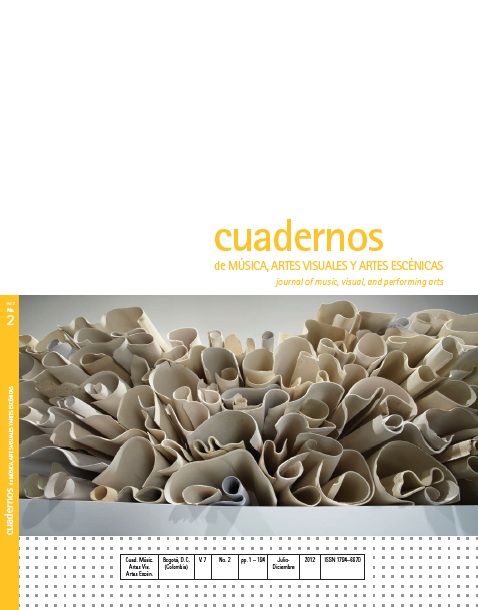Abstract
Este artículo analiza procesos de construcción de identidad y representación étnica en un festival folclórico enmarcado por las políticas multiculturales del estado colombiano. Asimismo, da cuenta de cómo el bullerengue –una tradición musical local, fuerte actualmente en la zona de Urabá– es utilizado como herramienta para dicha construcción, tanto desde el sector institucional como desde las comunidades afrocolombianas de base. En este sentido, mi argumento es que los festivales –apoyados por administraciones locales y la empresa privada– han delimitado y contenido estas prácticas culturales, generando procesos de objetificación, escenicación y folclorización, si bien, simultáneamente, fomentan procesos de construcción de identidad étnica. Este estudio está sustentado en trabajo de campo, así como en investigaciones en tres frentes: representación étnica en contextos de multiculturalismo, festivales folclóricos y procesos de construcción de identidad étnica afrocolombiana.This journal is registered under a Creative Commons Attribution 4.0 International Public License. Thus, this work may be reproduced, distributed, and publicly shared in digital format, as long as the names of the authors and Pontificia Universidad Javeriana are acknowledged. Others are allowed to quote, adapt, transform, auto-archive, republish, and create based on this material, for any purpose, provided the authorship is duly acknowledged, a link to the original work is provided, and it is specified if changes have been made. Pontificia Universidad Javeriana does not hold the rights of published works and the authors are solely responsible for the contents of their works; they keep the moral, intellectual, privacy, and publicity rights.
Approving the intervention of the work (review, copy-editing, translation, layout) and the following outreach, are granted through an use license and not through an assignment of rights. This means the journal and Pontificia Universidad Javeriana cannot be held responsible for any ethical malpractice by the authors. As a consequence of the protection granted by the use license, the journal is able to publish retractions or to correct information already published. Publishing contents in this journal does not generate royalties for contributors.


